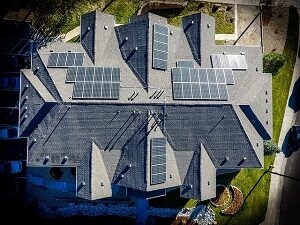 Most decentralized energy technologies are not on track to achieve a global energy transition that would produce a below-2°C climate scenario by 2040 as specified in the Paris Agreement.
Most decentralized energy technologies are not on track to achieve a global energy transition that would produce a below-2°C climate scenario by 2040 as specified in the Paris Agreement.
This is according to the Tracking Clean Energy Progress report, released this week by the International Energy Agency (IEA).
Among the technologies in the ‘not on track’ category are heating, renewable heat, geothermal energy and energy efficiency, while those in the ‘more effort needed’ category include cooling, bioenergy, demand response and energy storage.
Of the technologies we regularly cover on this site, only solar PV has achieved ‘on-track’ status. According to the IEA, solar made “tremendous progress” in 2017 while other technologies such as energy efficiency have “stalled”.
“Meeting long-term sustainability goals requires an ambitious combination of more energy efficient buildings, industry and transport, and more renewables and flexibility in power,” the IEA said. “Based on existing and announced policies … the world is not on course to achieve these goals.”
For the heating segment, which is ‘not on track’, the agency said that although heat pump and renewable heating equipment sales have grown by around 5 per cent per year since 2010, carbon-intensive fossil fuel-fired equipment still represents 50 per cent of these sales and less-efficient conventional electric heating equipment represents another 25 per cent.
To meet the agency’s sustainable development target, the share of of heat pumps, renewable heating and modern district heating would need to triple to reach more than one-third of new sales by 2030.
As for renewable heat, the IEA said consumption grew by an estimated 2.6 per cent in 2017, with total growth of 20 per cent since 2010. Renewable heat accounted for around 9 per cent of global heat and for more than 50 per cent of total final energy consumption globally in 2017.
Renewable heat would need to grow by 4 per cent per year between 2017 and 2030 to meet sustainable development goals. “This acceleration will be very challenging and requires a much greater policy focus,” the IEA said.
Meanwhile, the news is bright for solar PV, which grew by a record 34 per cent in 2017 and is “well on track” to meet its sustainable development target, which requires average growth of 17 per cent per year to 2030.
Source: Decentralized Energy
Decentralized energy ‘not on track’ for climate scenario says IEA